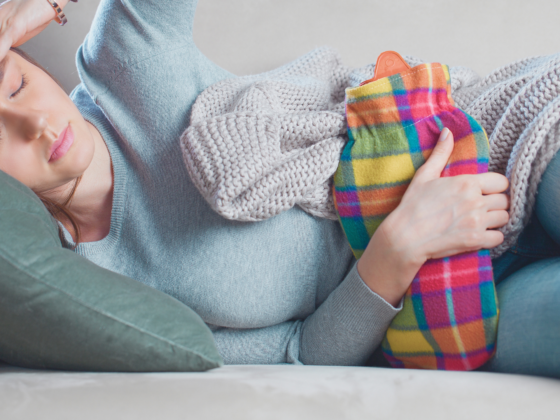Quality sleep is an important consideration when it comes to pain, injury and recovering after a workout. Research supports that individuals who get a bad night’s sleep (especially those with chronic sleep issues, insomnia, etc.) are more likely to have pain the subsequent day. In fact, two thirds of people with chronic pain suffer from sleep disturbances.
Sleep influences our pain experience and internal function.
Studies suggest that disturbances in sleep may hinder key physiological processes in the body that contribute to the development and maintenance of chronic pain, including your body’s ability to inhibit or regulate pain. A recent review showed the role poor sleep patterns can play in causing acute injury to transitioning into chronic pain in adolescents. Many of the substances in our bodies that help regulate our sleep-wake cycles such as serotonin also regulate pain signals (Andreucci, et. al, 2021). So if we constantly are in a depleted state due to lack of sleep, this can disrupt the balance of these processes in our bodies and therefore lead to persistent pain and inability to recover from an injury in a reasonable amount of time.
Poor sleep, especially over time, can also have negative impacts on things like cognitive function, emotions, immune function, energy conservation and synthesis, immune function, and cardiovascular health (Wei, et. al., 2019).
Injury Risk in the Athletic Population
Even for patients without chronic pain, the risk for overuse injury increases with lack of quality sleep. A recent 2020 study showed that less than 7 hours of sleep led to an increased injury risk in endurance athletes (Johnston, et. al., 2020). They found that there was a 2 week delay from the period of poor sleep to the time of the new injury!
Oliver, et. al. in 2009 found that for athletes with 30 hours of total sleep deprivation, they experienced a 2.9% decrease in running performance. Another study looked at 2 groups of endurance athletes performing a stationary cycle test to failure. One group had normal sleep and the other group was sleep-deprived. The athletes in the sleep-deprived group showed a 9% reduction in endurance (Temesi, et. al., 2013).
How about effects on weightlifting performance? One study showed that limited sleep to 3 hours per night for just 2 nights, reduced lifting performance in multiple upper and lower body exercises (Reilly & Piercy, 1994). Other important factors such as motor control, coordination, and athletic response time have also been shown to be negatively impacted due to lack of quality sleep, all of which can lead to injury (Mah, et. al., 2019).
The take-home message for the above examples is that with poor sleep not only are you at increased risk for injury, but your athletic performance will suffer.
Adequate sleep can increase athletic performance.
A great example of what consistently good sleep can do for you can be found in Stanford’s men’s basketball team. The players participated in a 2011 study by Mah, et. al. where they increased their sleep an average of 2 hours per night for 5-7 weeks, with the goal of getting about 10 hours of sleep per night. As a result, the team saw a 10% increase in sprint performance and 9% increase in 3-point and free-throw accuracy!
Helpful Sleep Tips
- Go to bed and wake up at the same times every day
- Go to bed and wake up at the same times every day
- Keep your bedroom dark and cool
- Limit screen time – no cell phone or TV 30-60 minutes prior to bed
- Keep caffeine intake to early in the day
- Meditation/mindfulness practices
If you are struggling with pain or an injury, physical therapy can help! We can evaluate your movement, strength, and function and come up with a plan to help get you out of pain and back to doing what you love!
Written by Nick DiSarro, PT, DPT, OCS
Sources: Wei, Y., Blanken T.F., Van Someren. Insomnia really hurts: Effect of a bad night’s sleep on pain increases with insomnia severity. Retrieved from https://pubmed.ncbi.nlm.nih.gov/30210367/
Finan, P., Goodin, B., & Smith, M. (2013, December). The association of sleep and pain: An update and a path forward. Retrieved from https://www.ncbi.nlm.nih.gov/pmc/articles/PMC4046588/
Johnston, R., Cahalan, R., Bonnett, L., Maguire, M., Glasgow, P., Madigan, S., . . . Comyns, T. (2019, November 01). General health complaints and sleep associated with new injury within an endurance sporting population: A prospective study. Retrieved from https://www.sciencedirect.com/science/article/abs/pii/S1440244018308545
Oliver, S. J., Costa, R. J., Laing, S. J., Bilzon, J. L., & Walsh, N. P. (2009). One night of sleep deprivation decreases treadmill endurance performance. European journal of applied physiology, 107(2), 155-161.
Andreucci, A., Groenewald, C. B., Rathleff, M. S., & Palermo, T. M. (2021). The Role of Sleep in the Transition from Acute to Chronic Musculoskeletal Pain in Youth—A Narrative Review. Children, 8(3), 241.
https://www.mdpi.com/2227-9067/8/3/241/pdf
Temesi, J., Arnal, P. J., Davranche, K., Bonnefoy, R., Levy, P., Verges, S., & Millet, G. Y. (2013). Does central fatigue explain reduced cycling after complete sleep deprivation. Med Sci Sports Exerc, 45(12), 2243-53. http://karen.davranche.free.fr/pub/Temesi,%20Arnal,%20Davranche_et_al_MSSE_2013.pdf
Reilly, T., & Piercy, M. (1994). The effect of partial sleep deprivation on weight-lifting performance. Ergonomics, 37(1), 107-115. https://pubmed.ncbi.nlm.nih.gov/8112265/
Mah, C. D., Sparks, A. J., Samaan, M. A., Souza, R. B., & Luke, A. (2019). Sleep restriction impairs maximal jump performance and joint coordination in elite athletes. Journal of sports sciences, 37(17), 1981-1988. https://pubmed.ncbi.nlm.nih.gov/31122131/
Mah, C. D., Mah, K. E., Kezirian, E. J., & Dement, W. C. (2011). The effects of sleep extension on the athletic performance of collegiate basketball players. Sleep, 34(7), 943-950. https://academic.oup.com/sleep/article/34/7/943/2596050?TB_iframe=true&width=370.8&height=658.8
Sleep for Rehab; YouTube video presentation by E3Rehab https://www.youtube.com/watch?v=OAaAnWB-3jY




